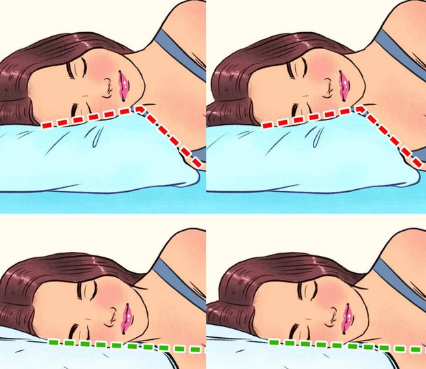
Introduction: Why Your Pillow Matters More Than You Think
We often focus on diet, exercise, and stress when talking about health, but sleep is just as critical. And here’s the catch—your pillow could be the very thing sabotaging your rest. A worn-out, poorly chosen, or dirty pillow can quietly chip away at your well-being, leaving you tired, achy, or even dealing with bigger health issues. Let’s break down five surprising ways your pillow might be harming your health and what you can do about it.
When Your Pillow Has Passed Its Prime
Think about how many hours you spend with your head on a pillow every night. Over time, pillows flatten, lose their shape, and start holding onto sweat, body oils, and allergens. This doesn’t just make them uncomfortable—it also makes them less effective at providing neck and spine support. The result? You wake up groggy, stiff, and anything but refreshed. Experts recommend swapping your pillow every 18 to 24 months, or sooner if you’re noticing aches, poor sleep quality, or discoloration.
Your Pillow and Mattress Should Work in Harmony
Sleep support isn’t just about the pillow—it’s about the teamwork between your pillow and mattress. Imagine a soft mattress that lets your body sink in deeply. Pair it with a thick, rigid pillow, and suddenly your spine is out of alignment. The right pillow complements your mattress and your sleeping style. Side sleepers may need extra loft for proper alignment, while back or stomach sleepers often need flatter, softer support. Get this balance right, and you’ll wake up feeling lighter and more energized.
Video : Proper Sleep Posture for Overall Wellness | Access Health
The Hygiene Factor: How a Dirty Pillow Affects Sleep
Your pillow collects more than dreams—it gathers sweat, skin cells, dust mites, and even bacteria. Over time, this buildup can trigger allergies, worsen asthma, or simply leave you feeling congested at night. A clean pillow is a healthier pillow. Washing pillowcases weekly, using a pillow protector, and replacing the pillow itself when needed can dramatically improve your sleep environment. Good sleep hygiene isn’t just about routines before bed—it’s about the space you create to recharge.
The Downside of a Rigid Pillow
A pillow that’s too stiff might seem supportive, but in reality, it can create just as many problems as a pillow that’s too soft. A rigid pillow forces your neck into awkward angles, especially if you toss and turn at night. Prolonged misalignment leads to tension headaches, neck stiffness, and even shoulder pain. As one physical therapist put it, if your neck is bent for hours, discomfort is inevitable. Choosing a pillow that adapts to your body’s shape can prevent strain and make sleep more restorative.
The Impact of Pillow Position on Sleep Quality
It’s not just the pillow itself but also how you use it. An improperly positioned pillow can strain your spine, worsen posture, and even aggravate conditions like sleep apnea. If your pillow is too high, it may tilt your head forward and restrict airways. If it’s too low, your neck might sag uncomfortably. Experimenting with wedge pillows or body pillows can help you find better positioning, especially if you suffer from sleep apnea or chronic back pain. Small changes in pillow placement can make a huge difference in overall sleep quality.
Video : Avoid These Pillow Mistakes: Learn How to Choose and Use the Perfect Pillow
Conclusion: Your Pillow Could Be the Key to Better Sleep
Your pillow isn’t just a fluffy accessory—it’s a vital part of your health routine. From hidden allergens to poor spinal alignment, the wrong pillow can quietly sabotage your energy, focus, and well-being. Replacing old pillows, choosing one that complements your mattress, keeping it clean, avoiding overly rigid options, and paying attention to positioning can transform your nights. Invest in the right pillow and you’re not just buying comfort—you’re protecting your health, one night of sleep at a time.


